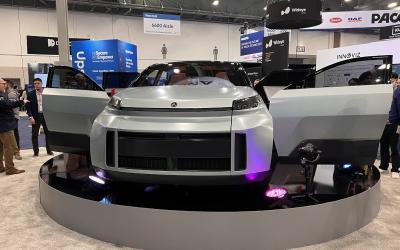HydroGraph receives purchase order for four novel graphene materials from global automotive customer
HydroGraph Clean Power, a sustainable commercial manufacturer of graphene, has announced that it has received a purchase order from a major global automotive company for research quantities of four additional graphene products. The purchase order includes both pristine functionalizations and completely novel formulations produced by HydroGraph’s patented explosion synthesis process.
The new purchase order is an expansion of the ongoing automotive composite improvement program which began with the customer earlier in 2024, adding new graphene projects in advanced manufacturing applications.








